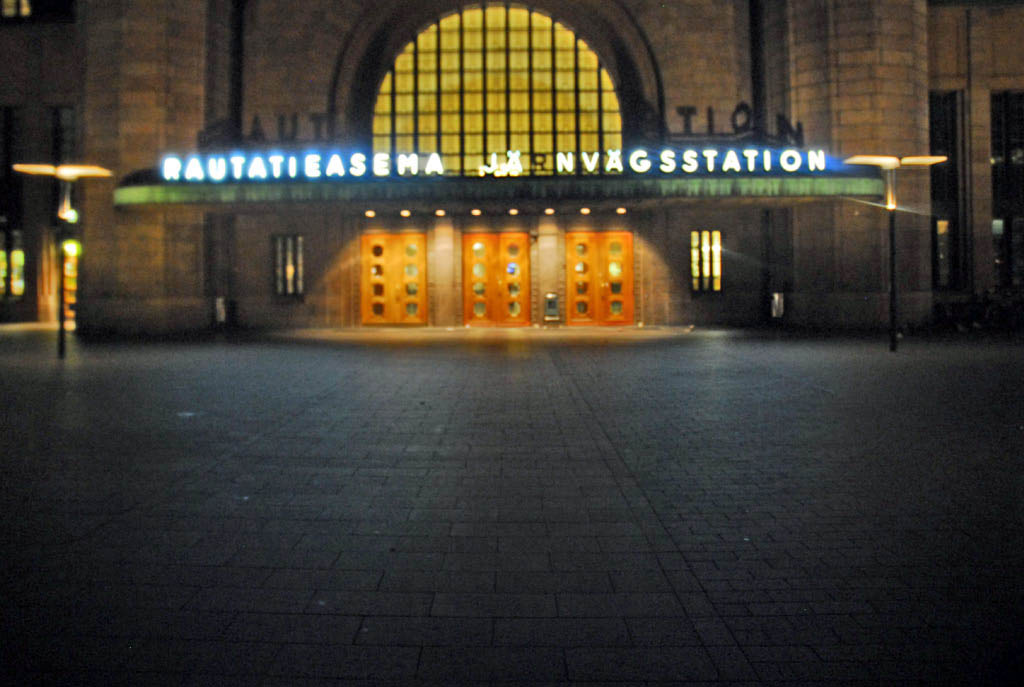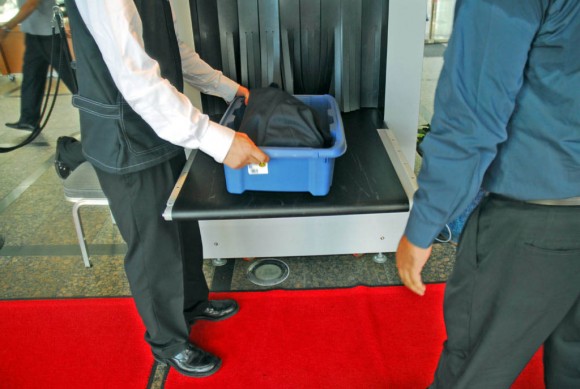The ASEM summit that is being held in Helsinki and today’s hotel check-in is somewhat different to the usual. The SAS Royal is hosting the Malaysian and Singapore delegations and the lobby has been retrofitted to include an airport style security procedure – pass all bags and metal objects through the x-ray machine and walk through the screening gate. (A friend staying in a hotel with Chinese delegation later mentions a perimeter around the hotel and guards on floors – I’m experiencing security-lite). After 20 hours on the road anything that gets between me and a shower/bed/privacy is simply a nuisance so and since the security screening appears to be optional and dependent on being pulled aside I take the opportunity to waltz by and check-in. So far so good.
Except that 2 hours later trying to catch up on sleep and there is a knock at the door. The Helsinki police, the hotel manager are there – my bags need to be repacked and pass through the x-ray machine. Oh, and you’ll need to leave the room to accompany the bags. Given that I’m naked and wrapped in a duvet it seems reasonable to want to get dressed – which is fine as long as the officer is present. His definition of privacy involves him turning around whilst I try to pull on my clothes in a haze of being woken from sleep + jetlag. As we exit the room 3 members of the Helsinki bomb squad accompanied by a sniffer dog walk in. Mental check of objects I’ve come in contact with in the last 24 hours.
Today’s travel clothes include a pair of reverse-pocketed snopants which I manage to put on back to front. I and the security detail notice this as I walk through the hotel lobby and I figure somewhere a fashion diety is smiling to herself. Down here my luggage is scanned. Up there a sniffer dog sniffs. And eventually my police escort gets the radio all-clear and I’m allowed back in my room.
Last year we spent some time researching what people lose and the steps they take to recover those objects. There are a range of situations where the owner of the lost-object doesn’t want to be associated with either the object or the context in which it was left. What kind of objects? Use your imagination and you’ll be pretty close.
Most people carry objects (and data) that they consider to be private and it’s reasonable to assume that people who check into hotels will be carrying more private objects than the average person walking on the street. Except that the x-ray machine and increased frequency of bag checks mean that the objects are less likely to remain private. Beyond the more obvious security controlled items like knives and, um, baby milk what new categories of objects will be left at home because they are less likely to remain private? To what extent does this challenge our notions of privacy?
A gentle start to the working week.

